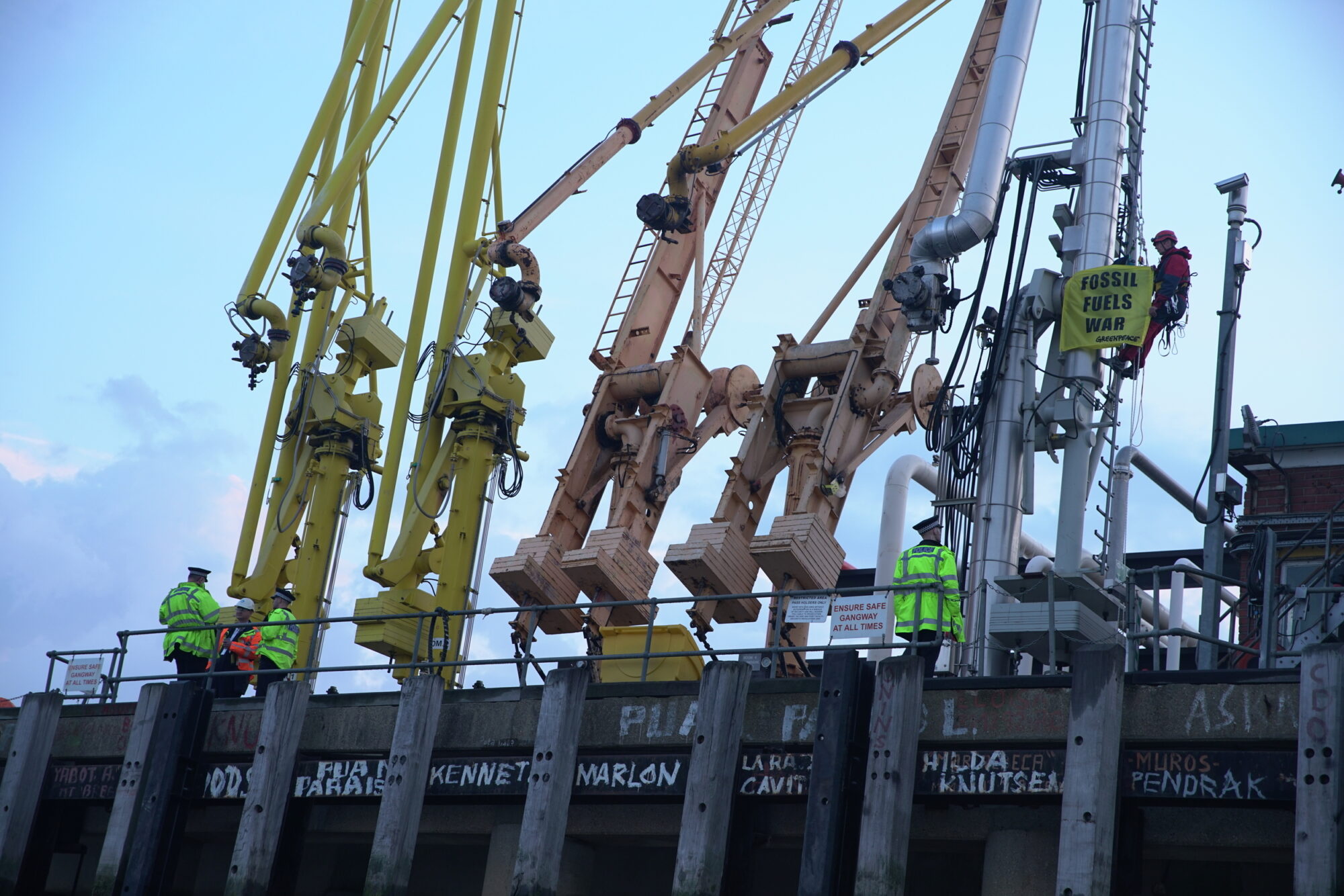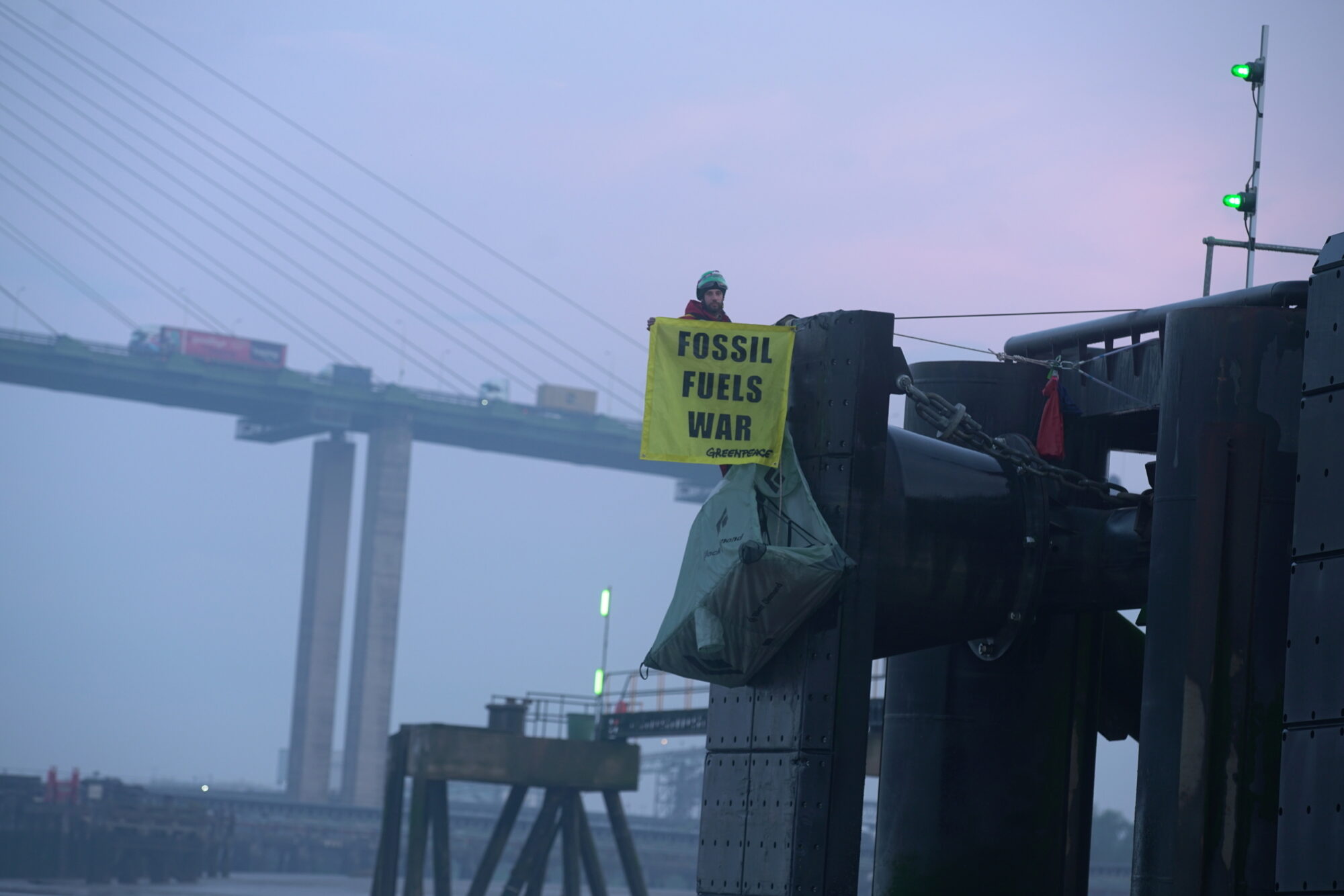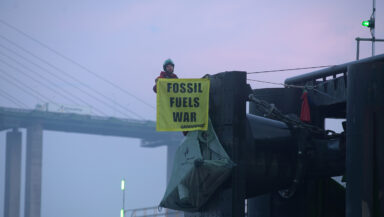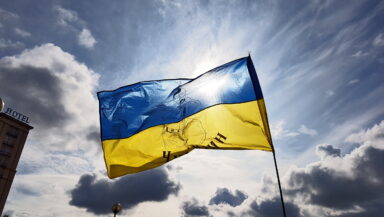Activists occupied the jetty where the tanker was due to arrive, preventing it from docking. They unfurled banners reading “OIL FUELS WAR”. With nowhere to go, the tanker turned around in the Thames and anchored off the coast near Margate.
The activists have now all been remove and arrested, but thanks to them, this ship full of Putin’s oil won’t be docking today.
Greenpeace’s Russian Tanker Tracker makes it possible to see when tanker shipments of fossil fuels are leaving Russia, and when they’re set to arrive in ports in the UK and around the world. Greenpeace activists have been using the tracker to protest shipments of Russian fossil fuels in the US, Denmark, Sweden, Poland, Belgium, Spain and the Baltic Sea.
Relying on oil and gas funds war and leaves us exposed
You may have seen the horrors of war through the media these past few months. But the fossil fuel industry has long been funding war whether we know it or not. And the war in Ukraine is no different.
Oil and gas accounts for 40% of Russia’s federal budget and makes up 60% of their exports. In October 2021,Russia made more than $500million a day from fossil fuels.
To put it simply: every time we buy Russian oil or gas, money from our pockets is going to Putin to fund this war. Yet, we can help stop war by cutting demand for fossil fuels – see what Stand with Ukraine groups say.
Even before this war in Ukraine, we were facing an energy price crisis in the UK. Millions of people face falling into poverty as they struggle to pay higher energy bills and increased living costs. Now, household bills could become £3000 higher by October 2022. Which could leave nearly 8.5million households in fuel poverty – 2.5million more than before the war began.
Last year, we might have experienced our energy company going out of business or seen offshore workers facing months of unemployment thanks to the government’s failure to act. But now we’re all seeing how closely connected oil and gas is with paying for illegal wars. And how vulnerable we are when we rely heavily on fossil fuel energy.





